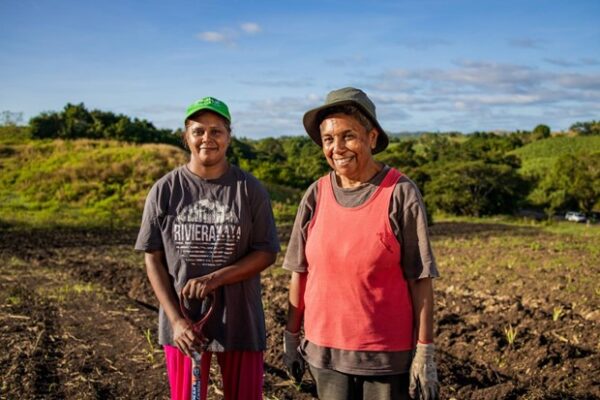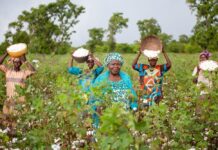The President of the United Nations International Fund for Agricultural Development (IFAD), Alvaro Lario, today called on world leaders attending the New Global Financing Pact Summit to find solutions that would significantly drive more funding to rural populations and the poor small-scale farmers who are key to global food security.
Held in Paris, 22 and 23 June, world leaders from government, international organisations, financial institutions, civil society and the private sector, will gather to discuss how best to reshape the global financial architecture to ensure that low-and middle-income countries can access the financing they need for their sustainable development, transition to net-zero and adapt to climate change.
“This Summit is an opportunity to build a consensus for a more inclusive global financial order which currently leaves the world’s poorest countries struggling to finance their own agricultural development and, most importantly, the small-scale farmers they depend on to feed local and national populations. Collectively, these farmers grow one third of the world’s food, making investments in their economic wellbeing and resilience to climate change, critical to global food security and stability,” said Lario.
While the quantity of Official Development Assistance (ODA) directed specifically at agriculture has been stagnant at 4 to 6% for at least two decades, developing countries are finding it increasingly difficult to finance the agricultural sector due to tightening credit conditions, rising financing costs and global inflation. At least 54 developing economies are currently suffering severe debt exposure.
“Developing nations need far more access to highly concessional financing. Multilateral organisations must optimise their balance sheets, provide better financing on more favourable terms and have the right instruments to support emerging challenges,” said Lario. “Developed countries must also ambitiously replenish multilaterals so that they can effectively deliver development results, reduce hunger and poverty and build resilience within country programmes.”
Lario added, “When fully replenished, institutions like IFAD can leverage significant additional financing to really make a difference in rural areas.”
Since 1977, IFAD has turned every donor dollar into six dollars of investment in rural areas. Its investments boost food production, build resilience to climate change and provide access to knowledge, markets and technologies that change the lives of millions of rural families. Between 2019-2021, IFAD investments improved the incomes of 77.4 million rural people and the food security of 57 million people.
“The private sector has a responsibility and critical role to play in development and climate action. We need to develop the financial instruments and create the right regulatory and policy environment that reduce risks and incentivise the private sector to invest,” said Lario.
Mobilizing private sector investments is essential to reach the Sustainable Development Goals and the Paris Agreement goals on climate. Public funding alone cannot provide the US$330 billion needed to eradicate hunger by 2030, let alone contain global warming and mitigate its effects. Small-scale farmers receive less than 2% of global climate finance, globally.
At the summit, Alvaro Lario will also advocate for fast tracking progress on crucial global initiatives such as the reallocation of the Special Drawing rights of the International Monetary Fund through international financial institutions to transform what is a liquidity asset into a vehicle for investments for climate action and development.
Small-scale farmers grow one third of the world’s food and up to 70 percent of the food in low- and middle-income countries thus playing a significant role in global food security and stability. Yet, they often go poor and hungry. Eighty percent of the world’s poorest live in the rural areas of developing countries and the three billion rural people of the world are already affected by climate change and extreme weather events.








